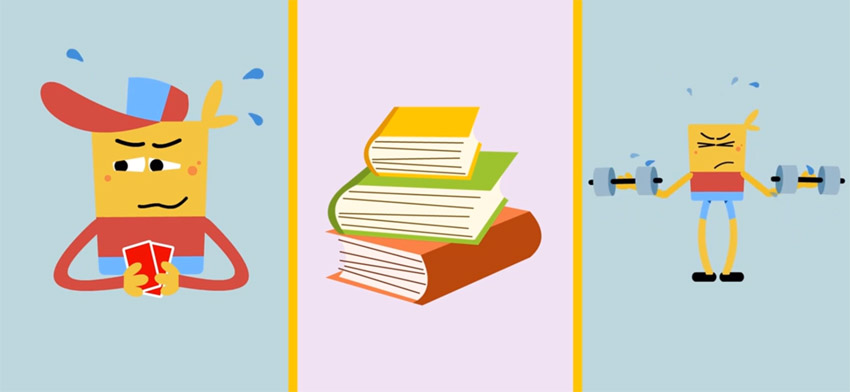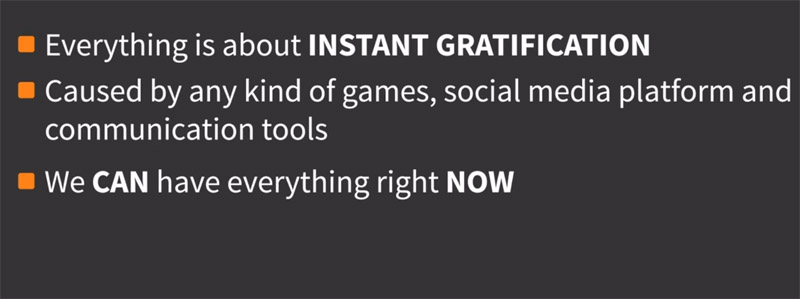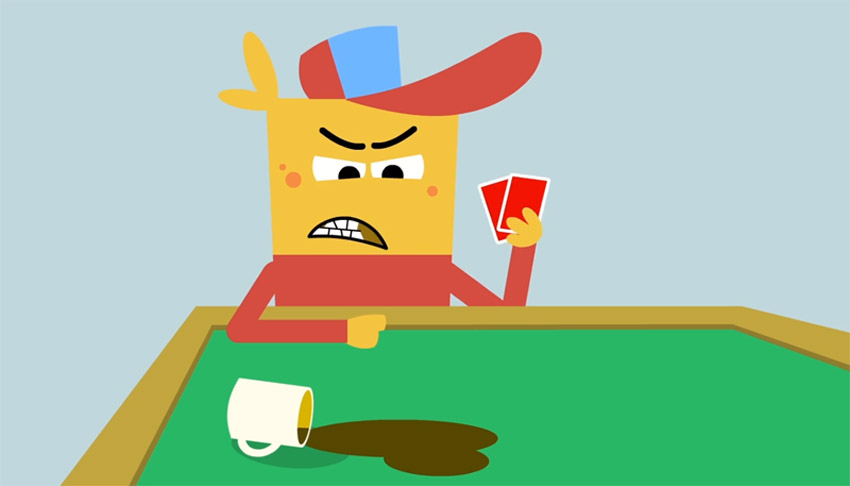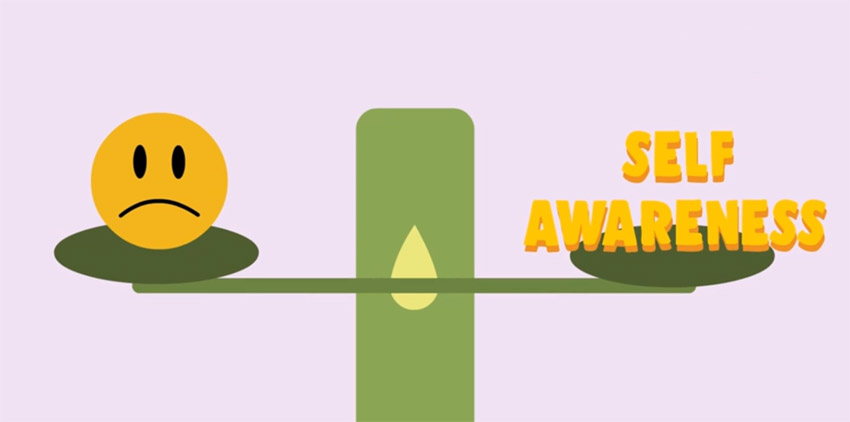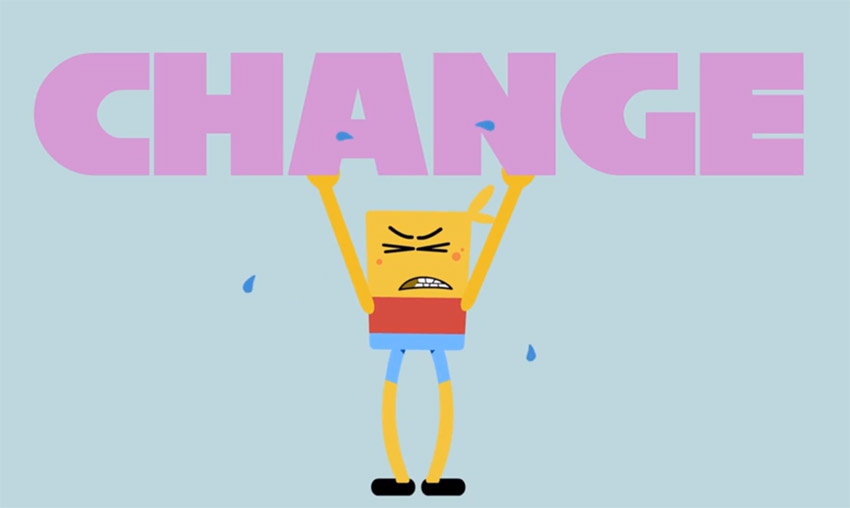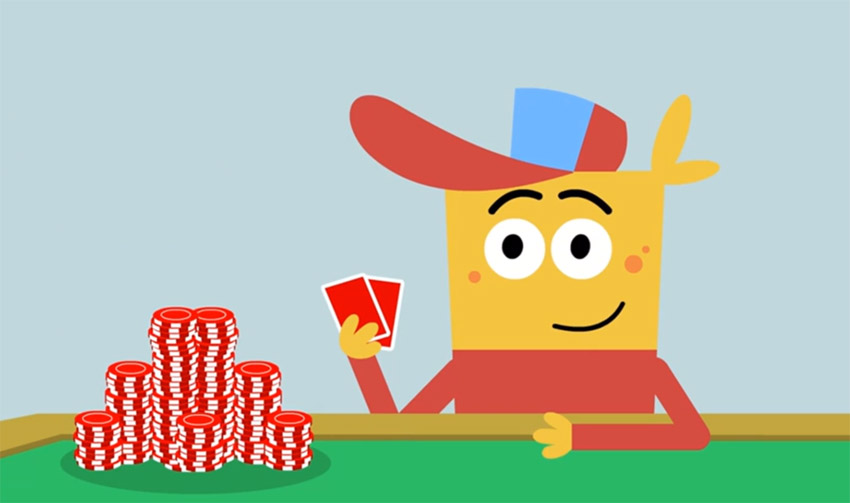Being a successful poker player isn’t just about knowing strategies you can use at the tables. While having solid theoretical fundamentals is crucial to your long-term success, many of those starting their poker journey focus too much on the technical side of the game, disregarding the human element.
The fact of the matter is that we’re all human beings and are heavily influenced by many outside factors. How you perform at the tables is directly connected to many things that you bring with, such as your motivation, state of mind, your goals and desires, and much more.
Therefore, the Unchained – A Powerful Mind course produced by Raise Your Edge’s owner ‘Bencb’, a very successful player and coach, represents an excellent resource that touches upon many subjects that strictly technical courses by raise your edge or other training sites won’t teach you. If you’re looking to make poker an important part of your life, and especially if you’re considering a professional career, this course will help you improve your mindset and reduce the onset of tilt when at the tables.
Unchained Mind at a Glance
The course offers fifteen individual lessons, each of them dealing with a particular aspect of what could be described as the meta-game. ‘Bencb’ addresses issues such as finding motivation, dealing with tilt, changing your perspective, and much more.
Although Unchained Mind is structured so that there are separate lessons covering different topics, the best way to watch this course is by starting at the beginning and going through the lessons one by one. Videos often refer to each other and there are many overlapping points so you’ll get most value by going through the course in the way the creator envisioned it.
All videos in the course follow the development of ‘Dave’, a fictional cartoon character who wants to become a great poker player. This approach definitely lightens the mood and will inspire you to keep focused on the lessons, some of which last up to fifty minutes, and make changes to your mindset and poker approach.
‘Bencb’ is really passionate about bringing his points home and it shows. He isn’t afraid to use some light profanities in his videos when he wants to emphasize something. I guess some viewers could have an issue with this but personally, I don’t see a problem with a phrase such as “live a happy fucking life”.
The way I see it, Unchained Mind can be divided into four main categories:
- finding a driving motivation and understanding factors that are holding you back
- dealing with tilt and related issues
- executing changes
- finally understanding how to balance things to achieve a professional success but remain happy and fulfilled at the same time.
Let break down each of these sections in more detail.
Motivation & Struggle
Several videos in this course focus on one large topic, which is finding the motivation. ‘Bencb’ begins by discussing motivation in general and explains that this is really just a notion that people use as an excuse to not do things. You don’t really need any outside motivation to work towards your goals – you simply need to decide to do what needs to be done.
In today’s world, most of us are spoiled by the desire for instant gratification. Poker players aren’t immune to this, either. However, achieving success in poker isn’t something that happens instantaneously. It takes months and years of hard and dedicated work, often with periods that feel anything but satisfactory.
So, you also need patience. Just being patient will give you a serious edge over the competition. Keep working towards your goals every day but don’t expect results to come today. You’ll get there eventually, but it is a long process.
As you move further into the course, Unchained Mind will start to explain many of the things that you might not have even been aware of. For example, why is it that you want to play poker in the first place? Do you do it because you love the game (inspiration) or because you feel it is something that can improve your financial or social standing (desperation and frustration).
There is a major difference between the two and this course does a great job of explaining it. The only way to unleash your full potential and feel happy is if you’re doing things because you want to do them, not because you feel like you have to or have no other choice. This is true for poker and many other things in life.
In his Unchained Mind, ‘Bencb’ continues to go even deeper and it’s quite possible that you might feel like there is too much “patronizing” going on at some point. However, if you really want to improve your mindset, you need to watch this series with an open mind and accept the fact that these are the things you likely need to change.
Lives of most people are defined by certain social norms and expectations that they’ve adopted when they were just little kids. Thoughts are often weighed down by the subconscious mind, which contains memories of many bad experiences. All of this can have a big impact on your poker career as you might feel like you’re doing something wrong and aren’t in line with what the society expects of you.
The course teaches you that these emotions and this struggle are completely normal both in life and at the poker table. This isn’t something you should try to deny. Instead, you should embrace it and accept it but not allow for it to hinder your progress. You can’t let your past dictate your future.
One of the things that Unchained Mind constantly repeats over and over again is that all the tools you need to start the process are readily available to you. You have all that is required within you. It takes some effort to dig deeper and actually use these tools – but they’re there.
Defining, Recognizing, and Battling Tilt
Tilt is an essential part of poker. All poker players tilt from time to time. When emotions take over and you’re not able to make decisions based on the rational part of your mind – you’re on tilt. However, not all types of tilt are the same and not everyone deals with it the same.
One of the first things you need to do in your fight against this negative influence is recognize what your biggest triggers are. Do you get annoyed because of the bad beats or because of an aggressive player constantly 3-betting you, or for a different reason entirely?
Whatever the reason might be, Unchained teaches you that there are numerous lessons you can learn from this. One of the most important ones is that you don’t really deserve anything. If there is a particular thing that annoys you, you might want to take a step back and see if there is something wrong in your game-plan.
If you’re getting 3-bet frequently, for example, and can’t do anything about it, perhaps your opening ranges are not up to part and need some work? If you’re experiencing many bad beats, try to keep in mind that poker exists only because of the short-term variance that allows even casual, inexperienced players feel like they might be winners.
‘Bencb’ offers a number of “little hacks” that can help you battle tilt, both at the tables and away from them. Of course, there is no magic pill that will make all your problems go away overnight. You need to be persistent and patient.
Some of the advice offered in Unchained Mind includes getting involved with a community that understands your struggle. At the same time, you don’t want to be focusing too much on bad beats and bad luck. If you complain too much all the time, all you’re doing is reinforcing tilt.
Videos covering this topic are really solid. Tilt is definitely one of the biggest issues most players have to deal with and understanding where this frustration comes from will go a long way in helping you significantly reduce its effects and simultaneously improve your results.
Implementing Positive Changes
Figuring things out in theory is all good and well but it won’t get you too far. ‘Bencb’ constantly emphasizes the importance of action. You can spend a lot of time learning poker theory but your results will depend directly on how well you’re able to execute what you’d learned in actual games.
Change of any kind can feel uncomfortable but it’s something you’ll need to get used to. The ability to drop your ego and accept feedback from others will play a huge role in this process. This isn’t to say you should take anyone’s advice at face value but you should be open to constructive criticism and accept useful feedback from those who actually want to help you achieve success.
A very important part in this process is also finding your “why”, i.e. the reason behind your desire to play poker. Love for the game is good motivation but there are usually other things you love as well. You need an additional incentive that will give you the reason to spend an extra hour or two analyzing hands instead of partying with your friends.
Finally, to achieve long-term success in poker, you need to understand you don’t need to play the perfect game. All you need to win is to make fewer mistakes than your opponents. Constantly obsessing over perfection will only frustrate you as it is an unattainable goal. Patience, dedication, and passion are all you need to succeed – there is no need for any extremes.
Finding & Maintaining Happiness
The final few videos in the Unchained Poker course focus on trying to offer a deeper understanding of what it means to be happy. Of course, this is a vast topic and the course doesn’t pretend to offer an answer to all of your problems but it does offer some good tips and lessons on how things usually work in life.
Being happy is often not about reaching the goal you’re striving to; it’s more about the journey itself and once you complete the journey, you might feel empty again. As strange as it is, some degree of struggle is usually required to be able to feel happy.
In the same vein, the pain that comes as a part of playing poker, all the problems and obstacles you’ll encounter, are very important as well. They teach you to stay humble and help you enjoy the success, when it finally arrives, much more. Without that experience, you just won’t be able to feel the same level of satisfaction.
Finally, poker can be quite demanding and mentally draining. Taking some time to distance yourself from the world and clear your thoughts will help you feel better and perform better. ‘Bencb’ suggests meditation as an excellent way of achieving this. Meditating regularly will help you stay more focused when required, recognize tilt faster, and detach yourself from difficult situations.
Summary: Is Unchained Mind Worth Buying?
There are many poker strategy courses out there but not that many programs that focus on the other side of the game. Unchained – A Powerful Mindset is definitely one of the most comprehensive courses in the market dealing specifically with the mental aspect of poker, teaching players skills they’ll need away from the tables.
This course is retailing at $597 but can be picked up fror $537 wyhen using coupon code HOWTOMIND at checkout.
If there is one negative aspect to Unchained Mind is that it feels somewhat repetitive at times. You’ll often feel like you’ve already heard a part of the lesson in one of the earlier videos. On the other hand, many of these same things can impact your game and your general quality of life in different ways so emphasizing them in this way might not be such a bad thing.
I’d say that this course is best watched over the period of a few days to a week. Take your time with it and try to apply advice and suggestions inside. As long as you put in the effort and keep an open mind about things, it is safe to say that Unchained Mind will help you become a better, more stable, and very likely a happier poker player and person in general.

